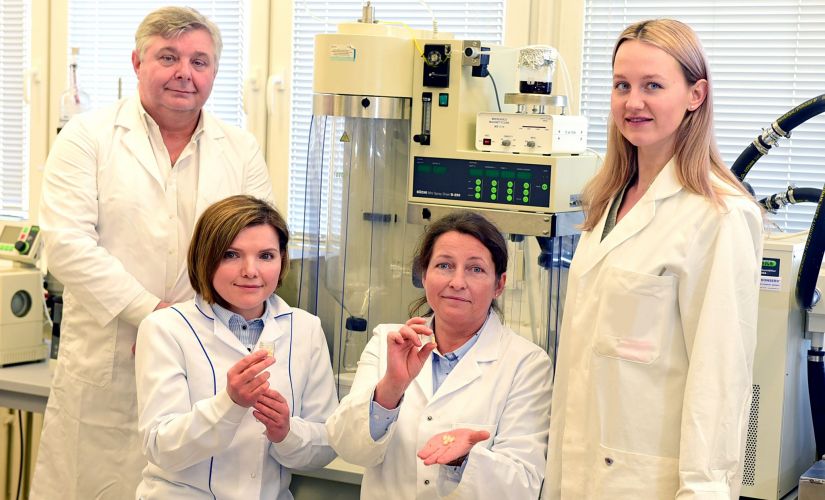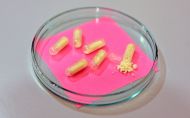Honey is one of the few natural products with high nutritional value and health-promoting properties, including antioxidant, immunomodulatory, prebiotic and antimicrobial properties. However, a significant proportion of bioactive compounds do not reach the intestine due to their high lability and degradation caused by low pH of gastric acids.
A research team from the Institute of Food Technology and Analysis at the Faculty of Biotechnology and Food Sciences has taken on the challenge of preserving honey in powder form using encapsulation. The success in the conducted research was achieved by: Assoc. Prof. Eng. Justyna Rosicka-Kaczmarek, Dr Eng. Gabriela Kowalska, Dr Eng. Karolina Miśkiewicz and Assoc. Prof. Eng. Tomasz P. Olejnik.
The researchers obtained a fixed honey product in the form of microcapsules using the spray drying method.
- While optimising the honey encapsulation process, we focused mainly on the selection of an appropriate encapsulating material, one of the main factors determining the success of the process, Prof. Rosicka-Kaczmarek - We were the first in the world to use natural biopolymers isolated from rye bran and linseed expeller as the covering material. These biopolymers, showing a significantly higher bioactive potential in comparison to natural honey, were also an added value of the obtained microcapsules. Moreover, the type of carrier used significantly reduced its amount in the encapsulate to 17 percent, compared to 50 percent in products already on the market.
As emphasised by researchers, the obtained microcapsules will be ultimately used as so-called controlled delivery systems of bioactive compounds to the intestine. Honey microcapsules have been tested in vitro.
- The results of the analyses showed that phenolic compounds, after all very useful for our organism, in the obtained honey powder have on average 85% higher biostability during simulated digestion in the stomach, which translates into their higher bioavailability in the small intestine. The innovative encapsulation process allowed the release of two to ten times more bioactive compounds in the small intestine in relation to the amount of compounds released from honey in its natural form, explains Prof. Rosicka-Kaczmarek. Our honey microcapsules can also be used to good effect as a preparation supporting wound healing or a nutraceutical with confirmed immunomodulating properties, i.e. regulating the immune response of the organism and prebiotic properties with the possibility of targeted, controlled release in the intestine.
The developed method of honey preservation by its encapsulation is protected by patent application P.433321. The team did not stop only at honey immobilisation. They are also investigating the possibility of encapsulating other bee products, i.e. royal jelly (patent pending P438554), feather or bee venom and other raw materials with high bioactive potential.


